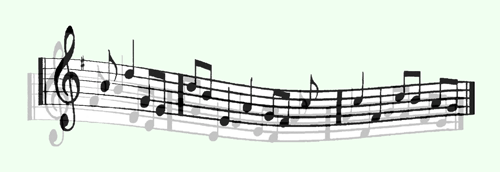
The Kodály Method is an approach to music education that was developed in Hungary during the mid-twentieth century.
The Kodály Method uses a child-developmental approach to sequence, introducing skills in accordance with the capabilities of the child. New concepts are introduced beginning with that which is easiest for the child and progressing to that which is more difficult. Children are first introduced to musical concepts through experiences such as listening, singing, or movement. It is only after the child becomes familiar with a concept that he or she learns how to notate it. Concepts are constantly reviewed and reinforced through games, movement, songs, and exercises.
Studies have shown that the Kodály Method improves intonation, rhythm skills, music literacy, and the ability to sing in increasingly complex parts. Outside of music, it has been shown to improve perceptual functioning, concept formation, motor skills, and performance in other academic areas such as reading and math.
